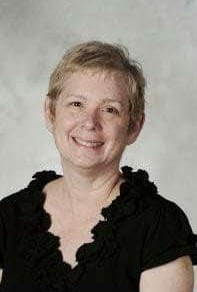From the Founder – Jill Auerbach
That initial gift was the foundation for what is now the Opportunity Research Scholars’ Program (ORS), which first consisted of 10 undergraduates, 4 PhD mentors and 3 faculty advisors. As the size of the program expanded, so did the mission. Now the teams are comprised of a rich mix of participants that extends far beyond the original target. During those first years, it became clear that the structure provided by ORS would be benefit all students to position themselves to the best of their ability for graduate school or industry careers. Thus, all electrical and computer engineering students are eligible to apply to ORS regardless of financial need or demographics.
ORS successfully provides programming that supports the academic, social, and professional development of ECE undergraduate students through experiences that encourage innovative thinking, collaboration and technical communication. The model combines a structured team- based undergraduate research experience, PhD student mentorship, skill based workshops and deliverables, and project based research to help students be competitive contenders for graduate school admission and career opportunities. ORS is made possible by generous industry funding, support from the School of ECE, dedicated staff and faculty advisors who are committed to undergraduate research.

